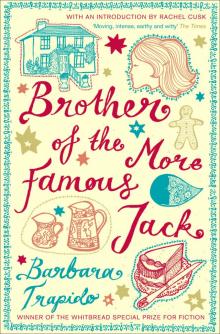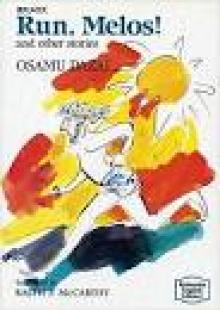A true believer is faced with a choice between love for his family and the Cuban Revolution."Daring, tough, and deeply compassionate, Achy Obejas's Ruins is a breathtaker. Obejas writes like an angel, which is to say: gloriously . . . one of the Cuba's most important writers."--Junot Diaz, Winner of the Pulitzer Prize for Fiction"In the Havana of Ruins, scarcity can only be fought with ingenuity, and the characters work very hard at the exquisite art of getting by. The plot rests on the schemes of its weary, obsessive, dreamy hero--a character so brilliantly drawn that he can't be dismissed or forgotten. A tender and wildly accurate portrait, in a gem of a novel."--Joan Silber, author of The Size of the World"Obejas evinces a new, focused lyricism as she penetrates to the very heart of the Cuban paradox in a story as pared down and intense as its narrator's life."--Booklist (starred review)"Compassionate and intriguing . . . Obejas plays out [the book's] conflicts in measured, simple prose, allowing her descriptions of the mundane--houses, food, dominoes--to illuminate a setting filled with heartbreak, confusion and decay . . . At her best, Obejas controls the mixture of humor and pathos that suffuse this poor community."--Los Angeles Times"Ruins is a beautifully written novel, a moving testament to the human spirit of an unlikely hero who remains unbroken even as the world collapses around him . . . A fine literary achievement, it's Achy Obejas at her very best."--El Paso Times"[A] superb novel . . . Highly recommended."--Library Journal"[An] honest and superbly written book."--Miami Herald"With the deft and evocative detail of a poet's, Obejas's prose is as illuminating and honest as her struggling protagonist."--Publishers WeeklyUsnavy has always been a true believer. When the Cuban Revolution triumphed in 1959, he was just a young man and eagerly signed on for all of its promises. But as the years have passed, the sacrifices have outweighed the glories and he's become increasingly isolated in his revolutionary zeal. His friends openly mock him, his wife dreams of owning a car totally outside their reach, and his beloved fourteen-year-old daughter haunts the coast of Havana, staring north.In the summer of 1994, a few years after the collapse of the Soviet Union, the government allows Cubans to leave at will and on whatever will float. More than 100,000 flee--including Usnavy's best friend. Things seem to brighten when he stumbles across what may or may not be a priceless Tiffany lamp that reveals a lost family secret and fuels his long repressed feelings . . . But now Usnavy is faced with a choice between love for his family and the Revolution that has shaped his entire life.From Publishers WeeklyIn 1994 Havana, times are hard: for maladroitly named Usnavy and his family, home is one windowless, sparsely furnished room, and rationing is so tight that pieces of a blanket... beaten and marinated in spices and a little beef broth pass for sandwich meat. When not managing the local bodega or playing dominoes with childhood friends, earnest Usnavy tries to keep his out-of-work wife and 14-year-old daughter from despair and disillusionment. His one treasure, as precious as his mother's legacy, is a most extraordinary lamp… of multicolor stained glass and shaped like an oversized dome. Around this lamp (a genuine Tiffany?), poet and novelist Obejas spins a mystery with political ramifications. Keeping within the tight frame of Usnavy's day-to-day life, Obejas confronts the ruin of Cuba; the fate of those who escape to the States, and those who remain; and broad issues of religious and sexual identity. With the deft and evocative detail of a poet's, Obejas's prose is as illuminating and honest as her struggling protagonist. (Mar.) Copyright © Reed Business Information, a division of Reed Elsevier Inc. All rights reserved. From BooklistStarred Review A fatherless child named in honor of the big U.S. Navy ships in Guantánamo Bay, Usnavy, weary and destitute at 54 in 1994, still believes fervently in Cuba’s Communist mission even though his neighbors are fleeing to the U.S. under the cover of darkness on anything that will float. Usnavy works, navigates state bureaucracy, plays dominos in the square with his ribald buddies, and basks in the radiance of his only treasure, an opulent, Tiffany-like stained-glass lamp. A rare object of beauty, an embodiment of light and transcendence, it links humble and honest Usnavy to a hidden facet of Cuban history, and to the freer world of creativity and its shadow side of greed and desperation, deception and secret justice. Following the substantial Days of Awe (2001), prizewinning, ever-innovative Cuban American writer Obejas evinces a new, focused lyricism as she penetrates to the very heart of the Cuban paradox in a story as pared down and intense as its narrator’s life. Inlaid with images of transformation, this Havana story in the Hemingway mode illuminates the tragedies and resiliency of a twilight land caught in the spell of a failed dream and portrays with exquisite sensitivity a man reaching toward the light. --Donna Seaman

 High Plains Tango
High Plains Tango Brother of the More Famous Jack
Brother of the More Famous Jack Run, Melos!
Run, Melos! Two More Pints
Two More Pints The Compass of His Bones (And Other Stories)
The Compass of His Bones (And Other Stories) Tiny Beautiful Things: Advice on Love and Life From Dear Sugar
Tiny Beautiful Things: Advice on Love and Life From Dear Sugar The Center of Everything
The Center of Everything Now You See Them, Now You Don't
Now You See Them, Now You Don't